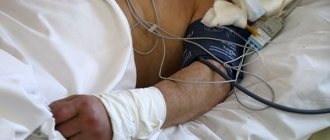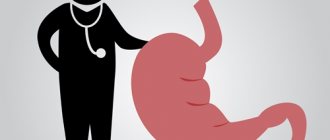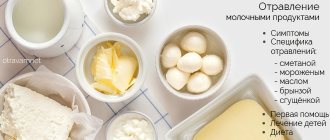Every person has experienced poisoning at least once. Poisoning is a disorder of the body accompanied by intoxication. It occurs as a result of toxic substances entering the body that disrupt its vital functions.
Poisoning affects almost all processes in the body, including milk production. In this regard, many mothers have a question about whether it is possible to breastfeed a baby if poisoned.
Signs of poisoning
According to international statistics, the number of poisoning cases increases every year. According to the World Health Organization, it causes two million deaths every year. Of these, only 25% are adults.
The most common type is food poisoning. It is caused by the consumption of low-quality or spoiled products.
The most frequently recorded symptoms are:
- nausea;
- vomit;
- bowel disorder.
The causes are of infectious and non-infectious types. The first type occurs when infected with hostile bacteria and viruses. The second type appears if a person has taken foods or substances containing poison and toxins. The most common cause of the second type is the consumption of poisonous mushrooms.
Poisoning can occur even after eating healthy food if dangerous microbes have come into contact with it.
Poisoning has virtually no incubation period. Its signs appear within an hour. Less often - after six hours. After the first signs appear, the patient's condition gradually worsens.
Depending on the severity of the situation, medical attention may be required. There are no general symptoms, since they depend on a whole range of factors:
- what was the reason;
- how much of the product or substance contaminated with harmful toxins was consumed;
- the state of the poisoned person before consuming it.
Almost any poisoning at the initial stage is characterized by:
- increased temperature;
- deterioration or complete disappearance of the desire to eat;
- weakening;
- diarrhea and pain in the abdominal area;
- bloating;
- nausea and vomiting;
- decreased blood pressure and chills.
But poisoning is not always accompanied by the listed signs. Therefore, it is not so easy to notice it.
Sometimes this condition is accompanied by:
- deterioration or complete loss of vision;
- severe muscle weakness;
- rapid production of saliva;
- hallucinations;
- paralysis
The last two signs are the most dangerous, since they are caused by improper functioning of the brain and nervous system. If you do not seek medical help promptly, you may end up in a coma. Therefore, you need to worry, first of all, not about what the baby will feel like, whether it is possible to breastfeed, but about your own condition.
Eating spoiled foods
Is it possible to breastfeed if you have food poisoning? What is the opinion of experts on this issue?
Eating spoiled or stale foods often leads to fermentation in the intestines, diarrhea, heartburn and increased gas formation. This condition is usually not dangerous for an adult and goes away within a few days. It is important to follow a diet and drink more water. In this case, you can feed. Doctors say that the negative impact of toxins formed in the mother’s intestines will not affect the baby’s health in any way. During this period, a woman should monitor her health and if it worsens, consult a doctor. Note that so-called poisoning can occur even due to incompatibility of products. For example, if you drink pickled cucumbers with milk, all the symptoms of poisoning will occur. However, they are completely harmless to the baby.
Is it possible to breastfeed a child if poisoned?
Mother's milk is the best food that can provide the baby with everything he needs. Transferring the baby to artificial formula is recommended only in emergency cases.
When a mother is poisoned, she is forbidden to breastfeed her child. Depending on the degree of poisoning, treatment is prescribed. If the cause is an infection, the woman is admitted to hospital for inpatient treatment.
While a woman is undergoing treatment, she continues to lactate. In this case, expressing milk is required. This action is necessary in order to alleviate the condition while doctors treat the mother’s intoxication. There are specialists on the hospital premises who can help mommy. During this time, the mother’s breast milk cannot be fed to the newborn.
The situation with mild poisoning is different. In this case, it is not only allowed to feed the baby with breast milk, but also recommended. In case of mild poisoning, the mother’s body produces antibodies, which are transferred to the child during feeding, strengthening his immunity.
Mild malaise affects exclusively the gastrointestinal tract. The chance of toxins or bacteria getting into breast milk is very low.
In case of poisoning, nursing women should adhere to careful hygiene. The bacteria that caused the woman's poor condition may persist on the hands or other parts of the body. By neglecting hygiene, a nursing mother risks infecting her baby with them.
If the doctor prescribes medication to treat even mild poisoning, feeding the baby is strictly prohibited. Medicines spread throughout the patient's body very quickly and can easily get into the milk.
In this case, medications affect lactation if the mother was poisoned while breastfeeding, even more strongly than the substances that caused the intoxication. At the time of treatment, the child is transferred to artificial formula.
Eating spoiled foods
Is it possible to breastfeed if you have food poisoning? What is the opinion of experts on this issue?
Eating spoiled or stale foods often leads to fermentation in the intestines, diarrhea, heartburn and increased gas formation. This condition is usually not dangerous for an adult and goes away within a few days. It is important to follow a diet and drink more water. In this case, you can feed. Doctors say that the negative impact of toxins formed in the mother’s intestines will not affect the baby’s health in any way. During this period, a woman should monitor her health and if it worsens, consult a doctor. Note that so-called poisoning can occur even due to incompatibility of products. For example, if you drink pickled cucumbers with milk, all the symptoms of poisoning will occur. However, they are completely harmless to the baby.
Rest
During the recovery period, the woman is prescribed bed rest.
Treatment of a nursing mother
The first step in treatment is detoxification of the body. In mild forms of poisoning, it can be done at home. It helps to quickly get rid of toxins and minimize their harm.
One of the most common methods of detoxification is cleansing the gastrointestinal tract.
It includes two stages:
- gastric lavage;
- bowel cleansing.
Usually the body copes with this task on its own. But if the condition does not improve, he needs help. To prevent harmful substances from entering the body, it is necessary to resort to adsorbents.
They are medications that do not cause harmful effects not only for the woman, but also for her baby.
Breastfeeding women are allowed to take:
- activated carbon;
- Smecty;
- Enterosgel.
Other medications are contraindicated because they are absorbed into the blood and pass into breast milk. If the mother does not want to give up feeding the child, it is better to carry out treatment with folk remedies. The most effective among them is chamomile tea.
Any medications should only be taken with a doctor's permission. By violating this rule, the mother risks harming not only herself, but also the health of her child.
Treatment at home
Steps you can take to treat yourself include:
- cleansing the body;
- relief of pain symptoms;
- maintenance therapy.
In order to detoxify the body, the first step is to perform gastric lavage. This requires drinking about a liter of warm water and inducing vomiting. Washing ends when the vomit becomes clear.
If there is no diarrhea, during which the intestines cleanse themselves, a course of cleansing enemas is required, using up to 2 liters of warm water. Flushing the intestines will prevent the spread of infection throughout the body, since it will remove a significant part of pathogenic microbes.
Frequent vomiting and copious stools are the cause of loss of fluid and microelements necessary for the body. To restore the water-salt balance, you need to drink plenty of fluids - it is best to use a weak saline solution or mineral alkaline still water, alternating them with sweet tea or a five percent glucose solution. You should drink often, but little by little.
If nausea and vomiting have not completely gone away, use green tea, dill decoction (a teaspoon of seeds per 200 ml of boiling water). Decoction of rice and decoction of bird cherry fruits (a tablespoon per 200 ml of boiling water) will help to cope with diarrhea. Antiemetics, as well as probiotics and enzymes to combat diarrhea, are used only as prescribed by a doctor.
Most antispasmodic drugs are incompatible with breastfeeding. The selection of medications for abdominal pain should be performed by a specialist. Chamomile tea can be recommended as a safe home remedy.
Preventive measures for breastfeeding women
In order to avoid the need for treatment, you should resort to preventive actions that will help reduce the risk of infection for yourself and your baby.
Preventive measures include a set of simple actions:
- there is no need to eat a product if there is no confidence in its benefits and safety;
- the water consumed must be boiled or bottled;
- Vegetables and fruits must be thoroughly processed before eating.
If you adhere to proper feeding, you won’t be caught off guard by poisoning from GW. But the most important indicator is personal hygiene. Without following hygiene procedures, the mother risks getting poisoned, even without consuming harmful and toxic products.
If poisoned, you can feed your newborn. The main thing is not to worry or panic. Feeding a child is contraindicated only in cases of acute intoxication. In other cases, there are no contraindications, and the woman can freely continue to care for her baby.
How to treat food poisoning?
Mild poisoning can be treated with home remedies - the main thing is that the treatment is aimed at removing toxins from the body. If you feel that your intestines are twisting and nausea sets in, rinse your stomach with warm water. Drink about a liter of warm water, then, by pressing on the root of the tongue, induce vomiting. To disinfect the intestines, you can add a small amount of potassium permanganate to the water to create a very weak solution. Repeat the procedure until clean water starts coming out. When breastfeeding, use an adsorbent: activated carbon, Enterosgel or Smecta. The drugs will help reduce the rate of toxins entering the intestines. Take them an hour and a half before or after meals.
Reviews from women
Is it possible to breastfeed if poisoned? Mothers have different opinions on this matter. Some women try to isolate the baby from themselves and shift all responsibilities to the father, grandmother or other family members. Other representatives of the fairer sex categorically do not want to curtail lactation even if they feel very poorly. The question of stopping breastfeeding is a personal matter for each mother. But in case of poisoning, you should still listen to the doctor’s advice.
Most of the women agreed on a single and correct opinion. They believe that all drugs for the treatment of poisoning should be prescribed by a doctor. During lactation, independent use of medications is unacceptable. During the consultation, the doctor will tell you whether the prescribed medications can be combined with breastfeeding or whether the latter should be abandoned.
Should I give my child prebiotics?
Some mothers begin to give their children medications containing prebiotics and probiotic cultures to minimize the negative impact on the baby's digestive system. Experts believe that this is not necessary, since the content of toxins and bacteria in milk is very low, and with milk the child receives the antibodies necessary to develop a specific immune response.
If the baby is already receiving complementary foods, you can increase the volume of fruit compotes and juices in the diet to prevent possible fluid loss. If, while drinking milk, the baby experiences a slight dilution of the stool, you can give him a little rice water - it has an antimicrobial and “fixing” effect and helps to improve the functioning of the digestive system without the use of drugs.
Breastfeeding is an important period in the life of a woman and child, helping to strengthen the emotional bond between mother and baby and promoting healthy growth and development. A few decades ago, it was believed that any poisoning was a reason to stop lactation, but now pediatricians give a positive answer to the question of whether it is possible to breastfeed if poisoned. By following the advice and recommendations of specialists, you can maintain lactation and protect your child from unpleasant consequences in the form of digestive disorders and intestinal infections.
Causes of illness
Poisoning occurs due to the consumption of low-quality products or medicines. Pathology can also occur due to chemical compounds and household substances entering the mother’s body. Poisoning is often confused with infection, since the symptoms of illness are similar. Intestinal infections can be viral or bacterial. The most dangerous are dysentery, salmonellosis, botulism and some others.
Poisoning, like an intestinal infection, manifests itself with vomiting, nausea, high fever, diarrhea and general malaise. A nursing woman with such symptoms should definitely see a doctor and find out whether it is possible to breastfeed if poisoned. Let's look at some possible answers to this question.
Prevention
In order to encounter such diseases as little as possible, you must follow certain rules:
drink quality water (bottled or filtered); do not eat perishable foods that have been sitting at room temperature for 3-4 hours, even if they seem to be “normal”; Monitor the shelf life of cooked food in the refrigerator; When purchasing products, check the packaging for integrity, pay attention to expiration dates and compliance with storage conditions (for example, if a product should be stored at a temperature of 2-8 OC, the thermometer readings on the store shelf should be exactly like this); buy food in trusted places; wash fruits and vegetables thoroughly; meat and fish products must undergo sufficient heat treatment; Maintain hand and kitchen table hygiene; Have a separate board for cutting meat and fish, as well as vegetables. Thus, by following simple recommendations, you can minimize the risk of poisoning
This means that breastfeeding will not take place in extreme conditions.
Thus, by following simple recommendations, you can minimize the risk of poisoning. This means that breastfeeding will not take place under extreme conditions.
Symptoms
The first symptoms of intoxication appear 2-6 hours after poor-quality food has been eaten. In mild cases, gastroenteritis is detected. This is an inflammatory process on the mucous membrane of the intestines and stomach. The following symptoms are typical for poisoning during breastfeeding:
- weakness, general malaise;
- nausea;
- eruption of stomach contents;
- upset stool, diarrhea;
- abdominal pain;
- elevated body temperature.
All of the listed problems with mild poisoning and the application of appropriate measures go away quite quickly, within the first day. But with severe intoxication, they only increase. Vomiting and diarrhea become uncontrollable, the temperature rises sharply, blood pressure drops, a rapid heartbeat appears, and even convulsions are possible. The body becomes dehydrated very quickly.
If in mild cases you can get by with home procedures, then in case of severe poisoning, a nursing mother should immediately consult a doctor. Based on your medical history, he will prescribe adequate treatment and give appropriate recommendations.











